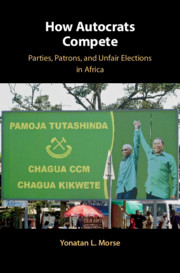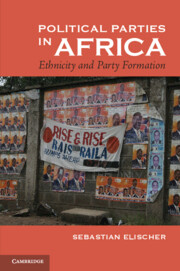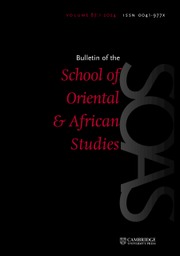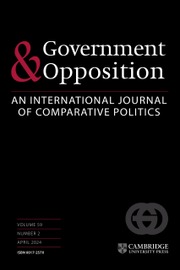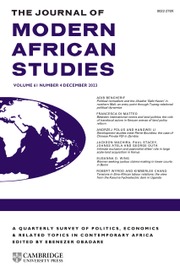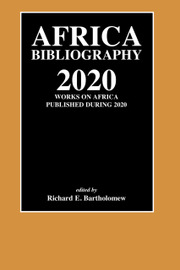How Autocrats Compete
Parties, Patrons, and Unfair Elections in Africa
$135.00 (C)
- Author: Yonatan L. Morse, University of Connecticut
- Date Published: January 2019
- availability: Available
- format: Hardback
- isbn: 9781108474764
$
135.00
(C)
Hardback
Other available formats:
Paperback, eBook
Looking for an examination copy?
If you are interested in the title for your course we can consider offering an examination copy. To register your interest please contact [email protected] providing details of the course you are teaching.
-
Most autocrats now hold unfair elections, yet how they compete in them and manipulate them differs greatly. How Autocrats Compete advances a theory that explains variation in electoral authoritarian competition. Using case studies of Tanzania, Cameroon, and Kenya, along with broader comparisons from Africa, it finds that the kind of relationships autocrats foster with supporters and external actors matters greatly during elections. When autocrats can depend on credible ruling parties that provide elites with a level playing field and commit to wider constituencies, they are more certain in their own support and can compete in elections with less manipulation. Shelter from international pressure further helps autocrats deploy a wider range of coercive tools when necessary. Combining in-depth field research, within-case statistics, and cross-regional comparisons, Morse fills a gap in the literature by focusing on important variation in authoritarian institution building and international patronage. Understanding how autocrats compete sheds light on the comparative resilience and durability of modern authoritarianism.
Read more- Proposes a new theory of electoral authoritarian competition
- Provides new insights into unfair elections in Africa
- Uses in-depth case-based methods along with cross-national comparisons and within-case statistics
Reviews & endorsements
‘Why do some authoritarian regimes enjoy genuine electoral support, while others resort to electoral manipulation and repression to stay in power? In this sophisticated analysis of contemporary authoritarian regimes, Yonatan L. Morse attributes variation in autocrats' electoral strategies to both the legacies of institution building and to the nature of international patronage. Morse's account is rich in nuance and firmly rooted in African politics, yet provides generalizable lessons that will be of interest to scholars of comparative politics and international relations alike.' Daniela Donno, University of Pittsburgh
See more reviews‘Yonatan L. Morse's book is an excellent contribution to the study of electoral authoritarian regimes. Grounded in a deep knowledge of contrasting cases such as Cameroon and Tanzania, the book focuses on the internal workings of ruling parties to provide new insights on how autocrats manage to hold onto power in some countries without having to resort to violence and fraud during elections.' Leonardo R. Arriola, Director of the Center for African Studies, University of California, Berkeley
‘This ambitious, imaginative and well written book has a great deal to tell us about how authoritarians give themselves an unfair electoral advantage - and so keep themselves in power - in Africa. We need to understand that authoritarians have gone from refusing to hold elections to finding new ways to rig them, and this book provides essential insights about how and why this has happened.' Nic Cheeseman, University of Birmingham and author of How to Rig an Election
'This book makes an impressive theoretical and empirical contribution, helping to move research on electoral authoritarianism beyond questions of durability and stability to a new question: how such regimes compete.' Susan Dodsworth, Democratization
'Yonatan Morse’s book is a must read for anyone interested in autocratic institutions or African political parties. It is a welcome qualitative analysis of autocratic parties that offers an in depth look at opaque organizations that nonetheless have had profound impacts on the political trajectories of the regimes they serve.' Natalie Wenzell Letsa, Perspectives on Politics
‘… a major contribution to the literature on authoritarian politics.’ Michaela Collord, Political Science Quarterly
Customer reviews
Not yet reviewed
Be the first to review
Review was not posted due to profanity
×Product details
- Date Published: January 2019
- format: Hardback
- isbn: 9781108474764
- length: 352 pages
- dimensions: 234 x 155 x 24 mm
- weight: 0.64kg
- contains: 23 b/w illus. 14 tables
- availability: Available
Table of Contents
1. The puzzle of electoral authoritarian competition
2. Ruling parties, international patrons, and electoral authoritarian competition
3. Electoral authoritarian competition and the African experience
4. The origins and structure of ruling parties in Tanzania, Cameroon, and Kenya
5. Ruling party credibility and the management of elite competition
6. Ruling party credibility and the sources of voter support
7. The electoral consequences of international patronage
8. Authoritarian competition in Africa's former single-party regimes
Conclusions. The comparative study of electoral authoritarianism
Appendix I. Electoral authoritarian competition in Africa
Appendix II. Typological theory coding and scores.
Sorry, this resource is locked
Please register or sign in to request access. If you are having problems accessing these resources please email [email protected]
Register Sign in» Proceed
You are now leaving the Cambridge University Press website. Your eBook purchase and download will be completed by our partner www.ebooks.com. Please see the permission section of the www.ebooks.com catalogue page for details of the print & copy limits on our eBooks.
Continue ×Are you sure you want to delete your account?
This cannot be undone.
Thank you for your feedback which will help us improve our service.
If you requested a response, we will make sure to get back to you shortly.
×
